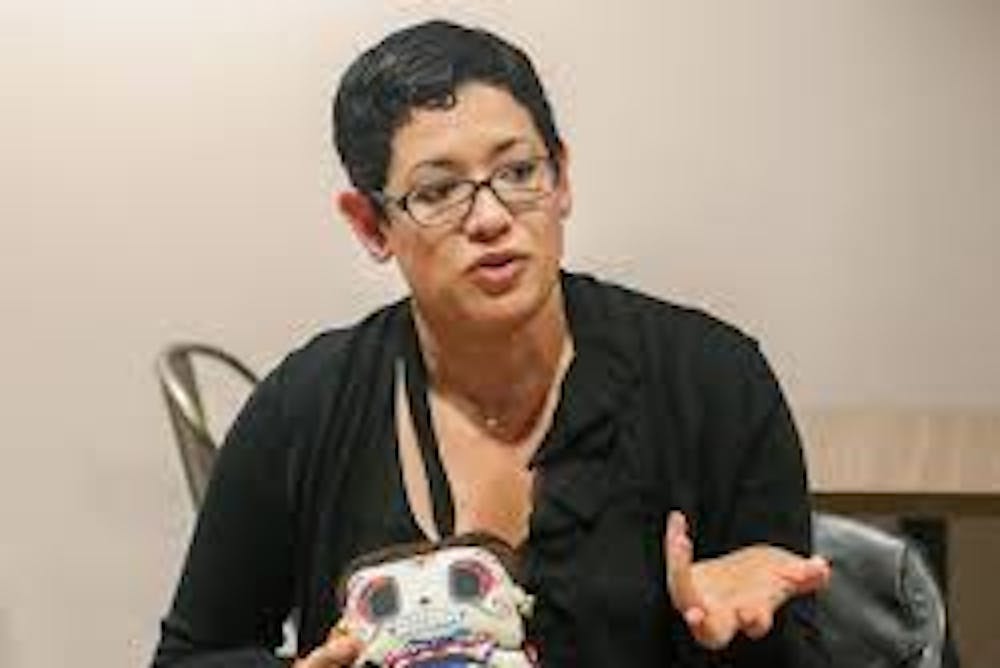Since its inception, the Graduate Mentoring Center at IU has been home to numerous programs for graduate students, undergraduate students, staff and faculty. After taking a year hiatus due to the COVID-19 pandemic, its Trailblazers and Innovators seminar series is returning virtually to the IU community.
The Trailblazers and Innovators series is an opportunity to reshape the field of academia and features a minority scholar from rotating disciplines each year, Maria Abegunde said. Abegunde, a lecturer at IU in African American and African Diaspora Studies and Gender Studies, said the series is focused on allowing scholars from underrepresented populations to share their experiences and research, interact with faculty and develop relationships with other professionals.
The series will begin Feb. 24 with a discussion focused on the importance of mentoring and redefining how to mentor, and further discussions will involve topics regarding methods in folklore and research. This year’s series features Mintzi Martinez-Rivera, an IU alumnus with a dual Ph.D. in Folklore and Anthropology. Martinez-Rivera said she was part of the first cohort at the GMC.
“I was incredibly privileged to be a part of the first cohort,” Martinez-Rivera said. “That experience of being a mentor really transformed the way that I do mentorship. Here was an opportunity to learn to do this in a more pedagogical, groundbreaking, purposeful way.”
The Graduate Mentoring Center was founded in 2014 by Abegunde. With a group of about 20 faculty members and 20 graduate students, the GMC provides programming on how to develop mentorships and best practices for learning and research, Abegunde said. Mentorships formed at the GMC aim to provide guidance to graduate students by allowing the students to develop relationships with faculty.
Abegunde said in a typical year, the featured scholar for the series would come to IU’s campus for a four to five day residency. While the pandemic has moved this year’s series online, Martinez-Rivera will be participating in four virtual discussions on Feb. 24, March 24, March 26 and April 21.
“One of the things that definitely helped me survive my education was informal mentorship,” Martinez-Rivera said. “Having something and someone like what the GMC does, that would’ve been a different story for me and so many other students.”
Solimar Otero, professor of Folklore and Ethnomusicology and Editor of the Journal of Folklore Research, said the mentorships and relationships being formed at the GMC are beneficial for both the students and faculty involved.
“For me, I really feel that with mentoring and coming into this very deliberate practice, there are so many great procedures in line,” Otero said. “From the perspective of a faculty member, there's not a lot of Cuban or Puerto Rican representation. This has been a big resource of breaking that isolation.“
Otero will be joining Martinez-Rivera for the session on March 24 in which the two will discuss their new book, “Theorizing Folklore from the Margins: Critical and Ethical Approaches.” The book will be a reflexive look on everyday folklore and how folklorists can affect marginalized communities positively and negatively.
“Issues with the environment, racism, war-torn communities — so many people are dealing with so many different struggles, and these are at the center of the book,” Otero said.
Otero said this book and the work of the GMC are breaking old patterns that are integrated into the very structure of the university and higher education. This involves stepping away from colonial practices that are ingrained in our everyday academic practices.
“We’re approaching questions such as, how as a scholar can you engage in the community as an activist, social worker and academic?” Abegunde said. “What are the risks that you take? How can you work to reshape scholarship?”
The series’ focus on featuring minority scholars will allow students to learn from a model that they’re likely not accustomed to, Abegunde said. She said she hopes this work will inspire others and reshape perspectives in and out of academia.
“It's important because oftentimes, students in these groups don't see themselves represented,” Abegunde said. “It’s an opportunity to make change and transformation. This is a slow process, but we come to it knowing that.”






